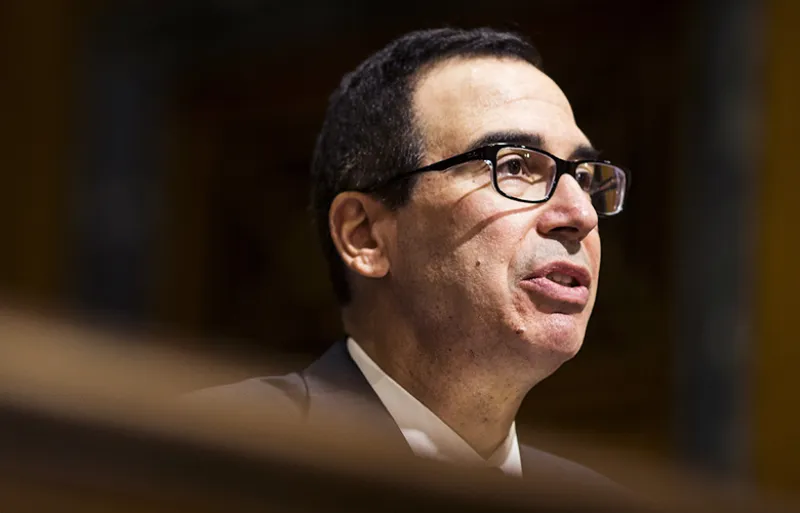Treasury Secretary Steven Mnuchin is taking steps to keep hedge funds from using a new loophole to avoid paying higher taxes on carried interest.
Mnuchin said Wednesday before the Senate Finance Committee that he is working with the Internal Revenue Service and the Office of Tax Policy to send out guidance in the next two weeks that will effectively end the use of this loophole, which hedge fund managers identified in last year's overhaul of the U.S. tax code. The new rules were meant to prevent hedge funds from paying a lower rate than ordinary income on carried interest, and Mnuchin believes he can step in to stop efforts to dodge them.
“That’s something that we believe we have the authority to do under the existing code that left to certain discretion to me as secretary and the IRS,” Mnuchin said before committee. “We will have that resolved.”
Carried interest, or the share of profits that hedge funds and private equity firms keep from the investments they make with other people's money, was a contentious issue ahead of the enactment of the new tax in December. Mnuchin had signaled earlier in the year that hedge funds would no longer benefit from the lower rate they pay on earnings tied to carried interest.
[II Deep Dive: Steven Mnuchin: Hedge Funds Will Lose Tax Benefits]
On Wednesday, Senator Ron Wyden, (D-Oregon), asked Mnuchin about the issues because of a Bloomberg story about hedge funds setting up LLCs in Delaware to skirt the new tax rules. “We already have hedge fund managers, according to Bloomberg, showing up with ideas for an even bigger loophole for the fortunate few,” Wyden said.
Critics have questioned why carried interest should be taxed at a capital gains rate when private equity firms and hedge funds are investing on behalf of others. Though the new law did not eliminate the favorable tax rate, the overhaul included a provision that required firms to hold investments for at least three years to benefit from the lower tax rate on carried interest.
This largely impacts hedge funds because they typically make shorter-term investment than private equity firms. Hedge fund managers typically sell their assets within three years of buying them, while many private equity investments are held for more than five years.






